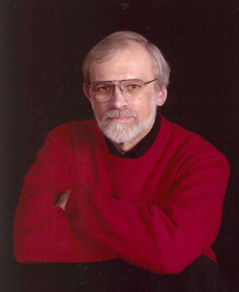As news of the impact of Federal budget cuts trickles down, I'm reminded once more of Wake Up Washtenaw's emphasis on private-sector investment. Since its inception four years ago, Wake Up Washtenaw has held that private investment, not government dollars, is the key to successful, sustainable community development.
Sure, this isn't a time when the private sector has a lot of money to throw around, either. But the principle remains: the key to success lies in private investment.
Why? Because the underlying philosophy of our country is private enterprise.
Is government "bad"? No. Is business "good"? No. But each has its strengths and weaknesses.
 The private sector can usually come up with more innovative ideas, and can usually get from plans to accomplishments faster. But business requires a rapid return on investment, and may be unwilling to shoulder risks. The government, on the other hand, is here for the health, safety, and welfare of its citizens (or should be) and so can take risks if necessary. It can wait much longer for return on its investments...and is often OK with no direct returns at all. The government also has what are known as "police powers", which in the legal sense include regulating land use and, sometimes, using "eminent domain" to acquire land for the public good.
The private sector can usually come up with more innovative ideas, and can usually get from plans to accomplishments faster. But business requires a rapid return on investment, and may be unwilling to shoulder risks. The government, on the other hand, is here for the health, safety, and welfare of its citizens (or should be) and so can take risks if necessary. It can wait much longer for return on its investments...and is often OK with no direct returns at all. The government also has what are known as "police powers", which in the legal sense include regulating land use and, sometimes, using "eminent domain" to acquire land for the public good.
All of that adds up to "public-private partnership" (PPP) being a good way to go.
Stations for transit, whether for rail or bus, are a good example of PPP opportunities that often go begging. But we've recently seen a couple examples where PPP has been used here in Michigan: one is Woodward Avenue light rail in Detroit, where station "naming rights" are sold for $3 million each.
The other example is Ann Arbor's Fuller Road station...sort-of. It's being built with funds from the City of Ann Arbor, a Federal High Speed Rail grant, and the University of Michigan Medical Center (UMMC). It's the latter that can be considered private...sort-of. Certainly, it's not the usual kind of "private" partner, but UMMC functions in many ways like a private business, so let's just call it that. After all, it's the largest employer in Washtenaw County.
Looking farther afield, Washington Metropolitan Area Transit Authority in the D.C. area has capitalized on PPP with many of its stations, leasing land to developers of high-rise buildings.
Even farther away, Japan has many examples of railways (all are at least nominally private) that make money from a host of travel- and land-related sources. The typical medium-to-large Japanese rail station is lined with shops, much as airports are in the U.S. Many also have high-rise or underground buildings with shopping centers, hotels, banks, and offices, directly over the tracks, under tracks and street, or immediately adjacent to them. Washington's and Chicago's Union Stations offer shops or, at least, food court
Many also have high-rise or underground buildings with shopping centers, hotels, banks, and offices, directly over the tracks, under tracks and street, or immediately adjacent to them. Washington's and Chicago's Union Stations offer shops or, at least, food court
Why don't more of our stations do that? At meetings, I've gotten a sense that transit planners think primarily about government funds for their projects. There are well-established channels for government money, but not private funds, to flow to transit agencies. Likewise, developers and businesses don't analyze potential new locations in terms of possible partnerships with transit. Most banks and other lenders don't think of PPP with transit as a safe lending risk.
That doesn't mean forward-looking transit officials haven't tried. AATA's CEO Michael Ford has gone practically door-to-door along Washtenaw Avenue looking for businesses willing to help support improved bus service along the corridor. And the new AATA downtown transit center will apparently be built without any private investment. When urged at a Board meeting a couple of years ago, the response was a brief, "We've tried". But apparently failed.
And yet, since the 1960s Federal transit funding laws have encouraged PPP. Why hasn't it taken off? Are the Federal rules too complex? Are lenders too hesitant? Are the communication channels too rusty? Most of all, what can we do about it...?





No comments:
Post a Comment